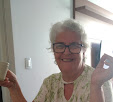LOOK FOR A STAR
BILLY VAUGHN & ORCHESTRA
SONGWRITER: M. ANTHONY
COUNTRY: U. S. A.
ALBUM: BLUE HAWAII/LOOK
FOR A STAR
LABEL: DOT RECORDS
GENRE: INSTRUMENTAL
YEAR: 1959
Richard
Smith Vaughn (April 12, 1919 – September 26, 1991), known as Billy Vaughn, was
an American singer, multi-instrumentalist, orchestra leader, and A&R man for Dot Records.
Vaughn was
born in Glasgow,
Kentucky, United
States, where his father, Alvis Radford Vaughn, was a barber
who loved music and inspired Billy to teach himself to play
the mandolin at the age of three, while suffering from measles. He went on to learn a number of
other instruments.
In 1941,
Vaughn joined the United States National Guard for what had been planned as a one-year assignment,
but when World War II broke out, he was in for the
duration as a valued musician and composer at Camp Shelby, Mississippi. Major General Daniel I. Sultan
decided that Vaughn was too valuable to the base's Thirty-Eighth Division big
band, and kept him at Camp Shelby for the duration of the war. He decided to make music a career when he was
discharged from the army at the end of the war, and on the GI Bill, attended
Western Kentucky State College, now known as Western Kentucky University, majoring in music composition. He had apparently
learned barbering from his father, because he did some while studying at
Western Kentucky to support himself financially, when he was not able to get
jobs playing the piano at local night clubs and lounges. While he was a student there, three other
students, Jimmy Sacca, Donald McGuire, and Seymour Spiegelman, who had formed a
vocal trio, the
Hilltoppers,
recruited Vaughn to play the piano with them. He soon added his voice to
theirs, converting the trio to a quartet. As a member of the group, he also
wrote their first hit song, "Trying", which charted in 1952.
In 1954, he
left the group to join Dot Records in Gallatin,
Tennessee, as music
director. He subsequently formed his own orchestra which had a hit single in that same year with "Melody
of Love." It
sold over one million copies, and was awarded a gold disc.
He went on to have many more hits over the next decade and a half, and, based
purely on chart successes, was the most successful orchestra leader of the rock
era.
Vaughn charted a total of 42 singles on the Billboard charts, often based on the sound of
two alto saxophones. He also charted thirty six albums on the Billboard 200, beginning with 1958's Sail Along Silv'ry Moon and
ending with 1970's Winter World of Love. He also had nineteen Top 40
hits in (Germany), beginning with the chart-topping "Sail Along, Silv'ry Moon", also a gold record, which was a cover of a
1937 Bing Crosby hit. He had two more number ones in
Germany: "La Paloma" and "Wheels"
(all three were reportedly million sellers). Billy Vaughn's recording of
"Wheels" was No. 1 for 14 weeks in Germany (Hit Bilanz) as well as
No. 1 in India, New Zealand, and Italy (Billboard hits of the world, various
issues 1961). Vaughn also charted in Australia, Latin
America, and Japan. "Pearly Shells" was a major success in Japan.
Vaughn's tours of that country began about the time "Pearly Shells"
was a hit in 1965. Many songs which were not US hits or even singles releases
there, were major hits in other countries. These included "Lili
Marlene", "Zwei Gitarren am Meer", "Blueberry Hill"
(Germany), and "Greenfields". Also successful were "Song of
Peace", "It's a Lonesome Old Town" (Japan), "Michelle"
(No 1 in Argentina and Malaysia), "Mexico" (No. 1 in the
Philippines), and "Bonanza" (a major success in Brazil and Italy
[Billboard Hits of the World, 1960s]) plus "Theme from the Dark at the Top
of the Stairs" (various Latin American countries). The album La
Paloma was a success throughout Latin America. He also had a number one
album in Germany in the early 1980s with Moonlight Melodies, which
consisted of 20 of Billy's biggest hits (original Dot recordings, original LP
notes and credits).
The Billy Vaughn Orchestra began touring in
1965 with numerous sell-out tours throughout Japan, Brazil, and South Korea.
In the late
1960s and early 1970s, Vaughn lived in Palm Springs, California. He died of peritoneal
mesothelioma at
Palomar Hospital in Escondido,
California,
on September 26, 1991, aged 72. He and his wife Marion are buried at the Oak
Hill Memorial Park in Escondido.
On June 25,
2019, The New York Times Magazine
listed Billy Vaughn among hundreds of artists whose material
was reportedly destroyed in the 2008
Universal fire.
The Billy Vaughn Orchestra, co-owned and managed by his son, Richard Smith
Vaughn Jr., is still a touring big band. The Billy Vaughn
Orchestra, produced by the Tate Corporation, Japan, toured Japan in 2013, 2014,
and again in 2018 to sell-out audiences.







0 comentários:
Postar um comentário